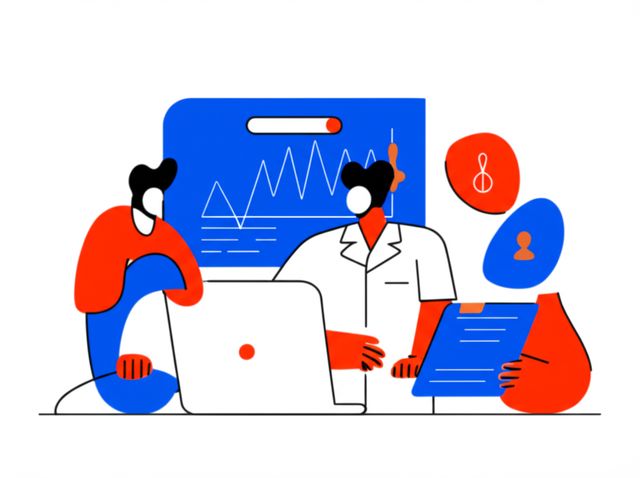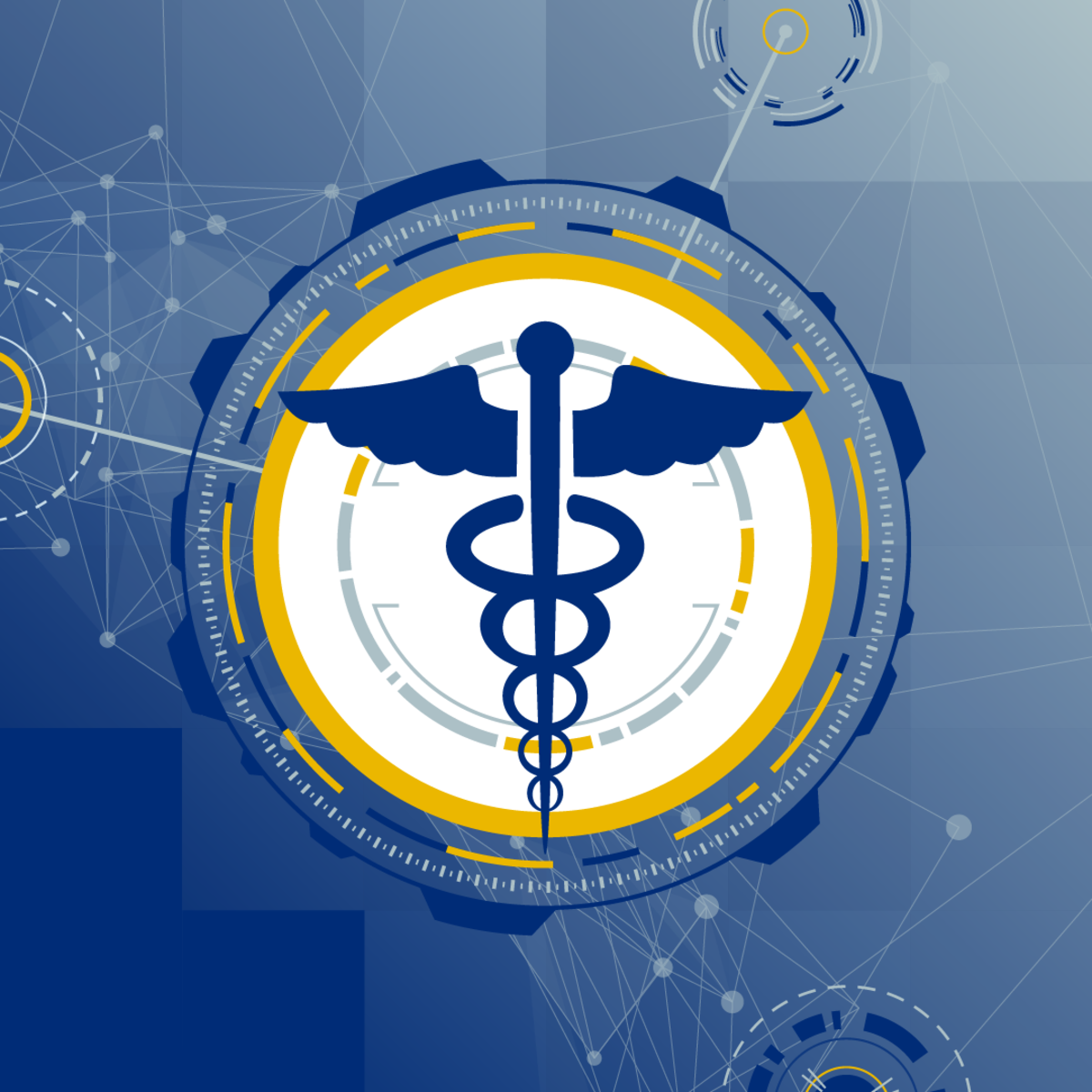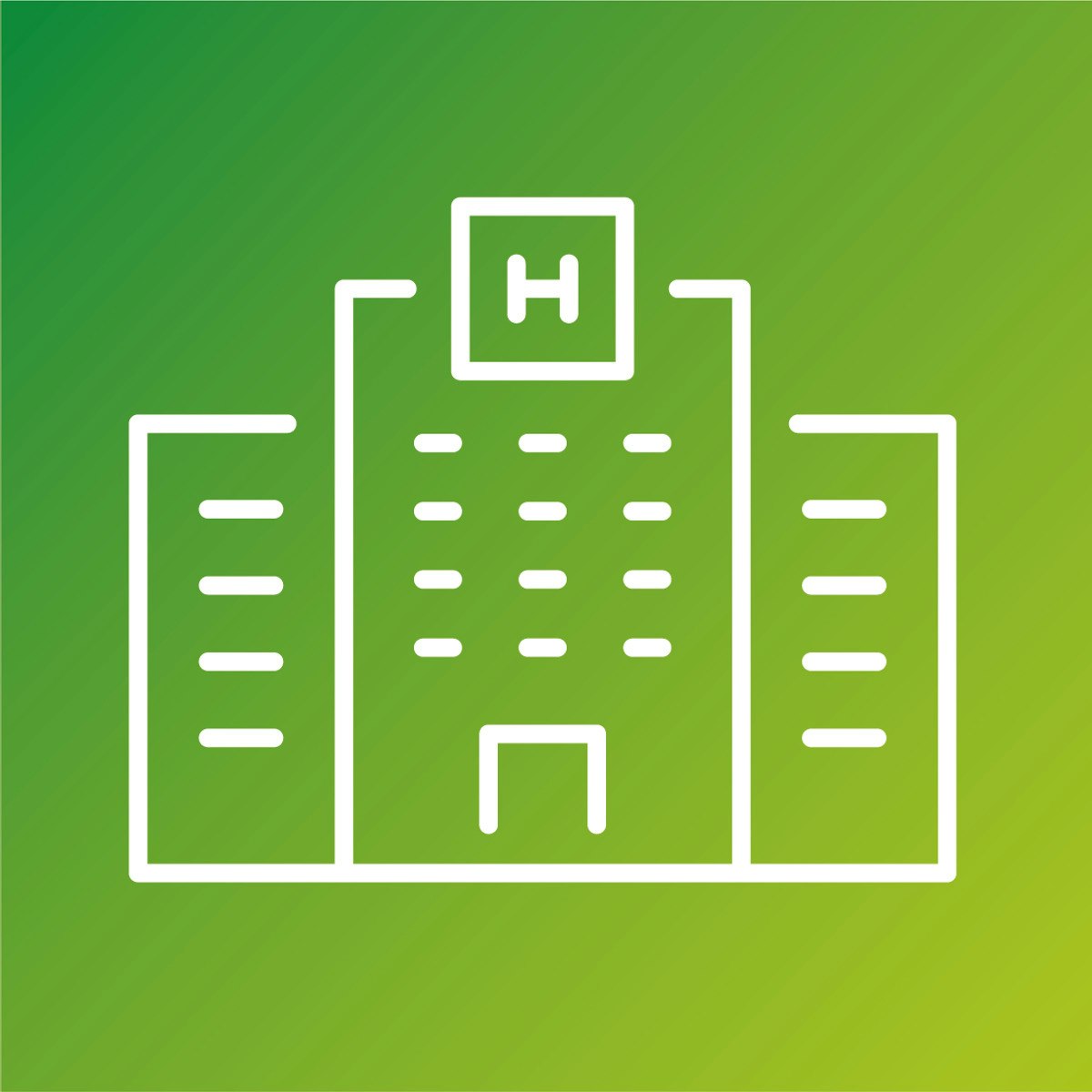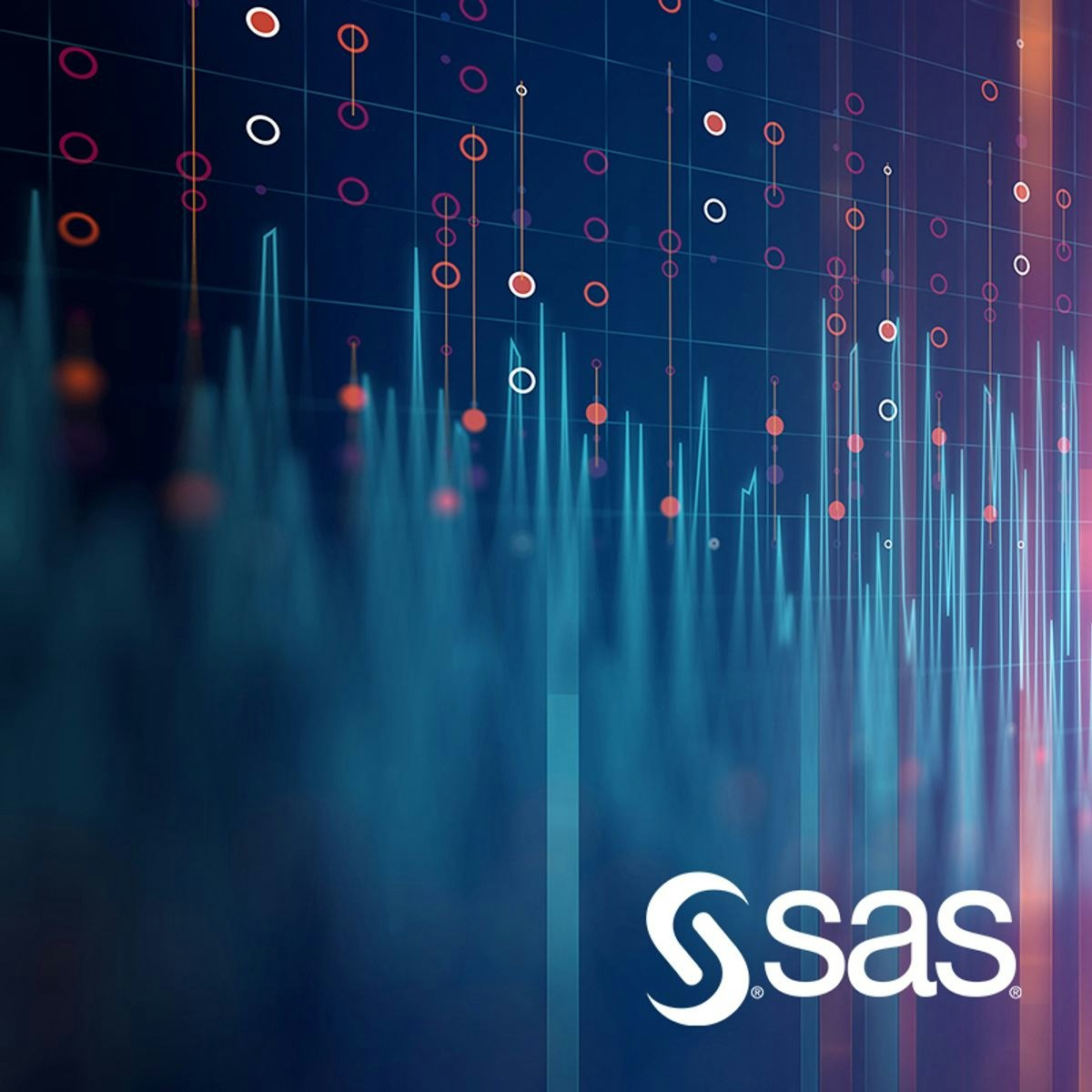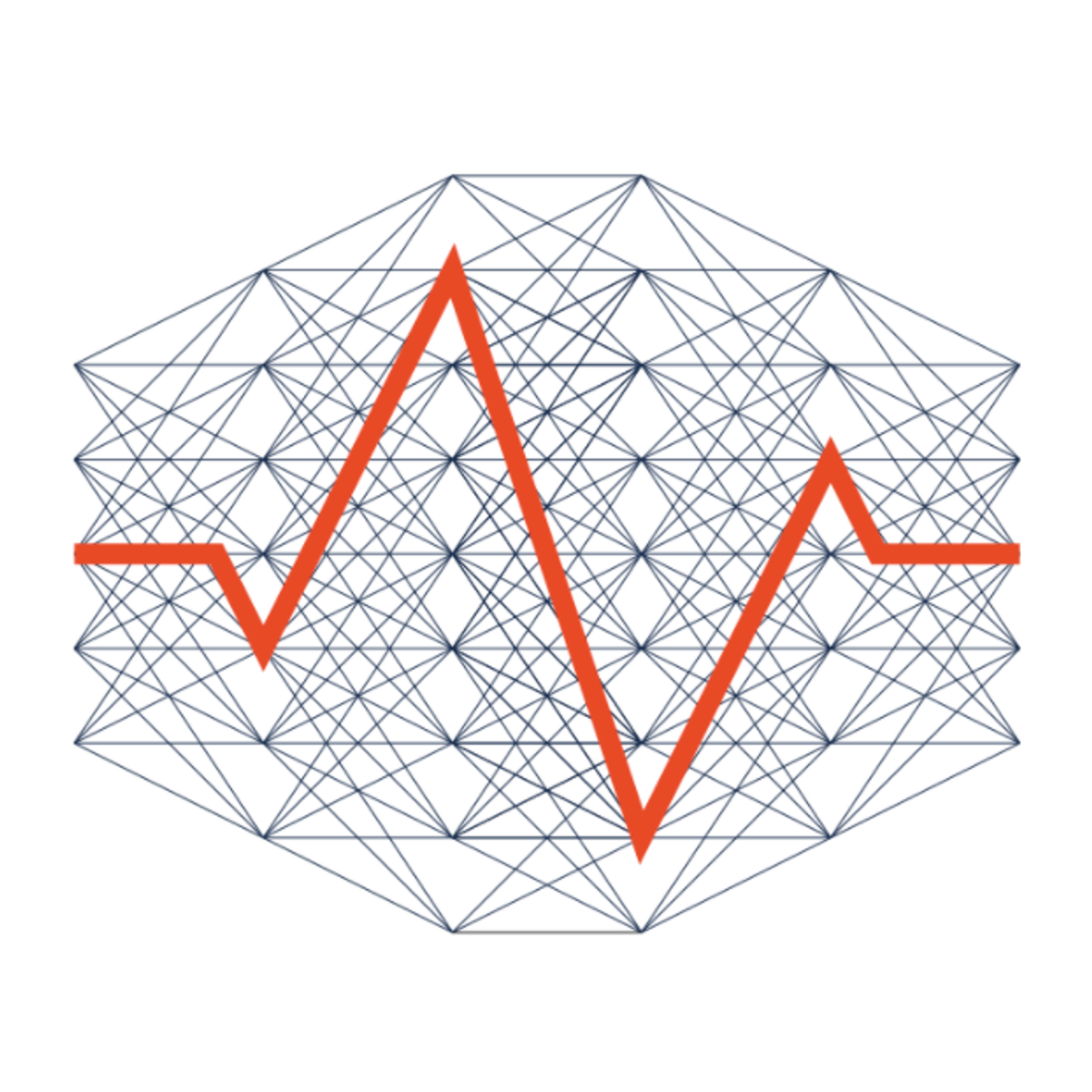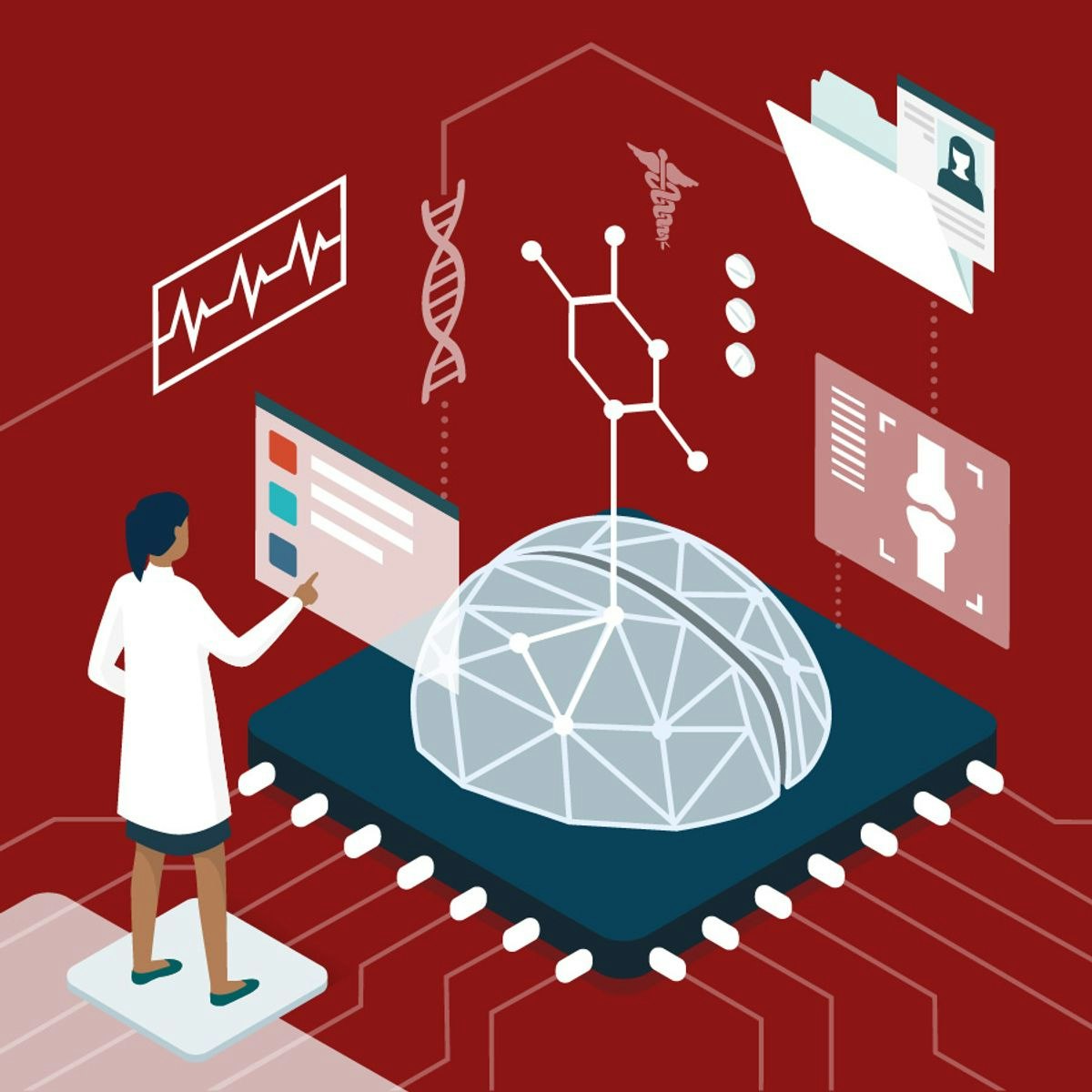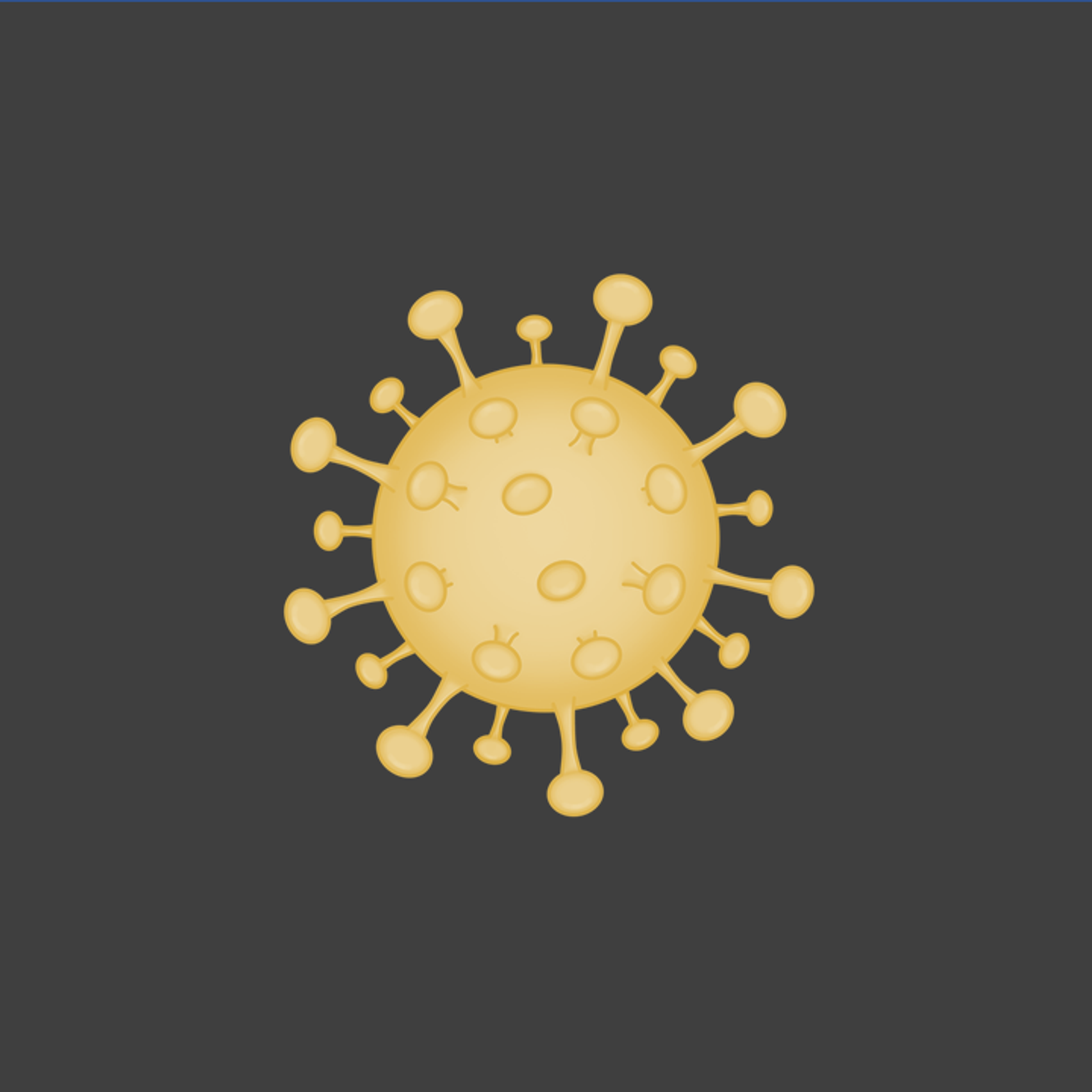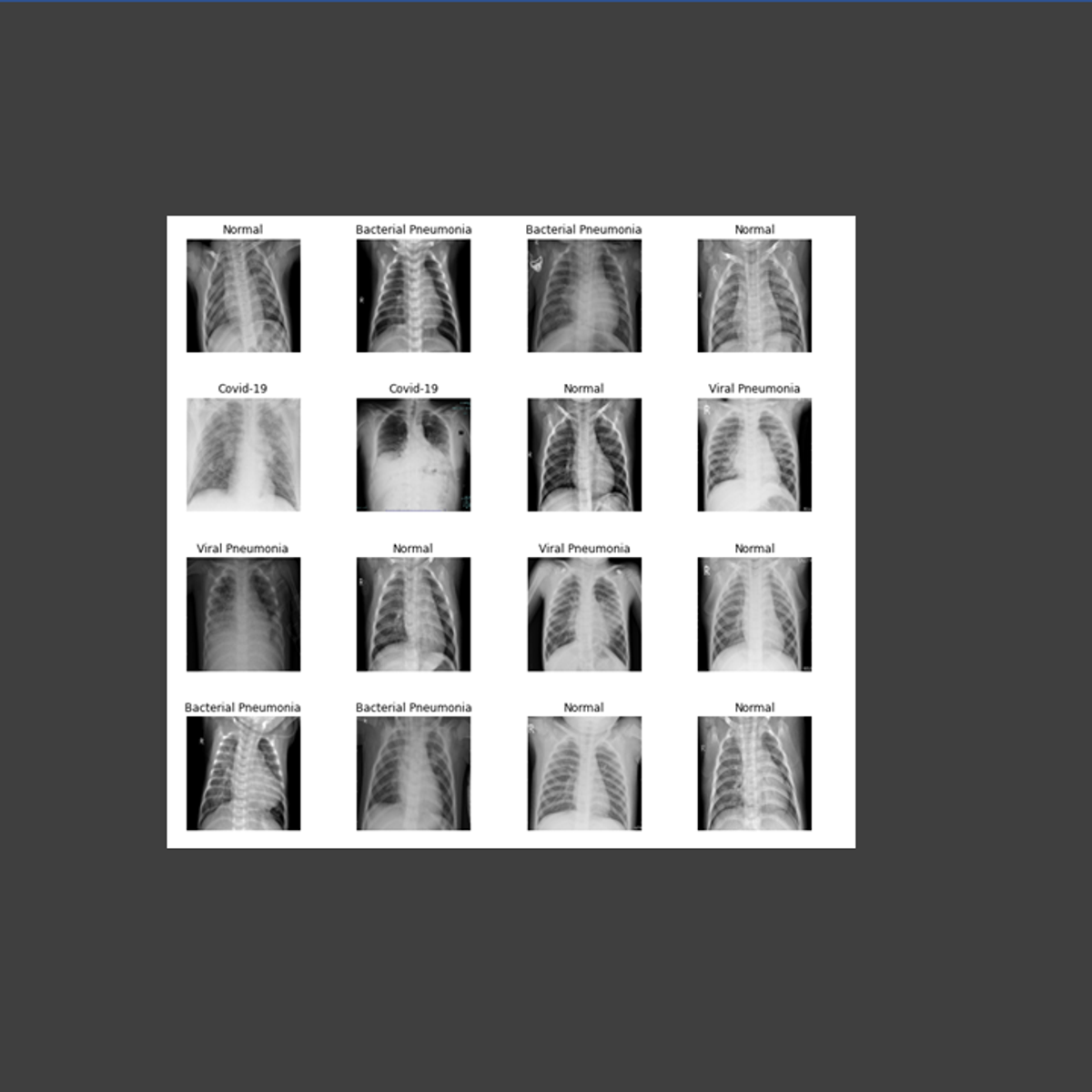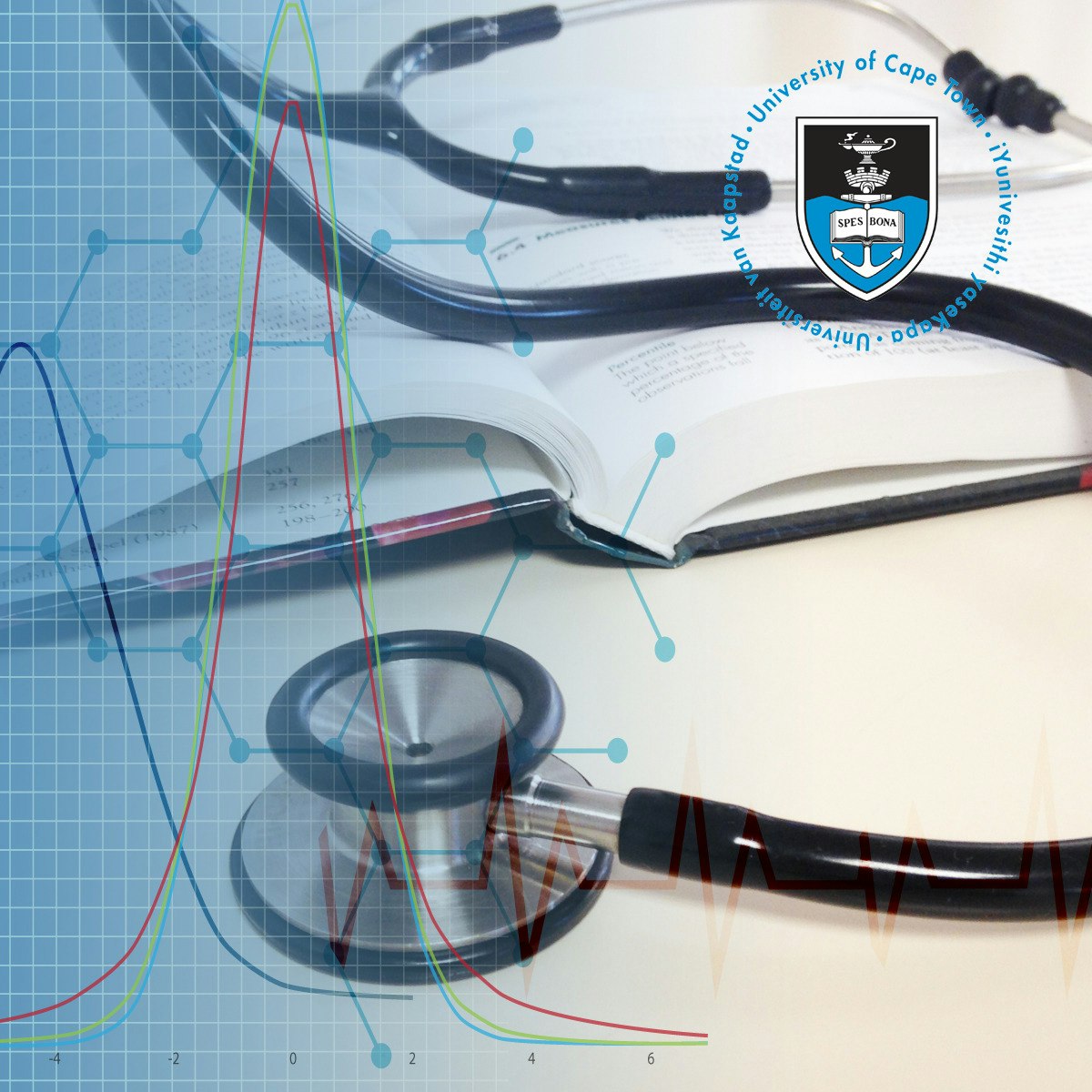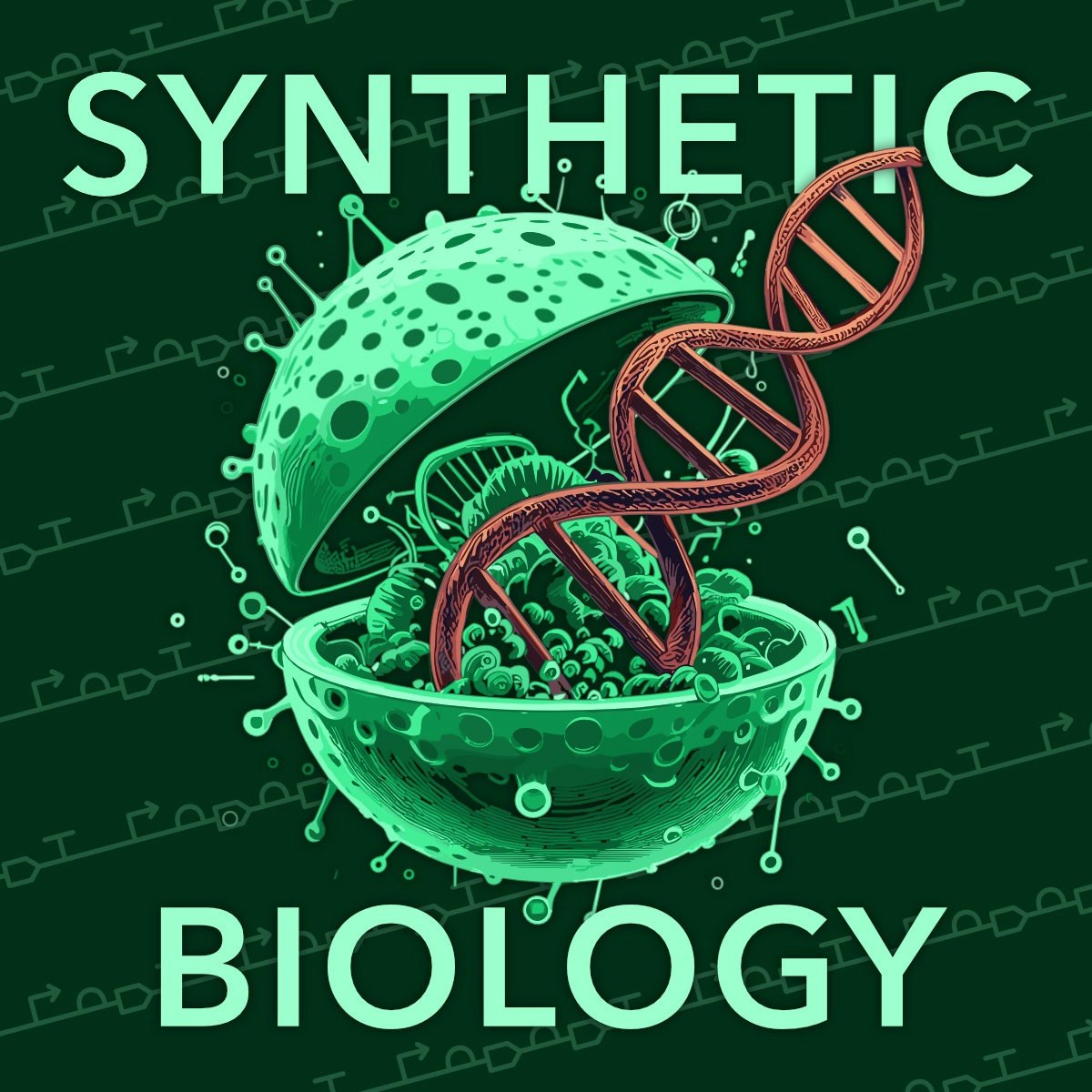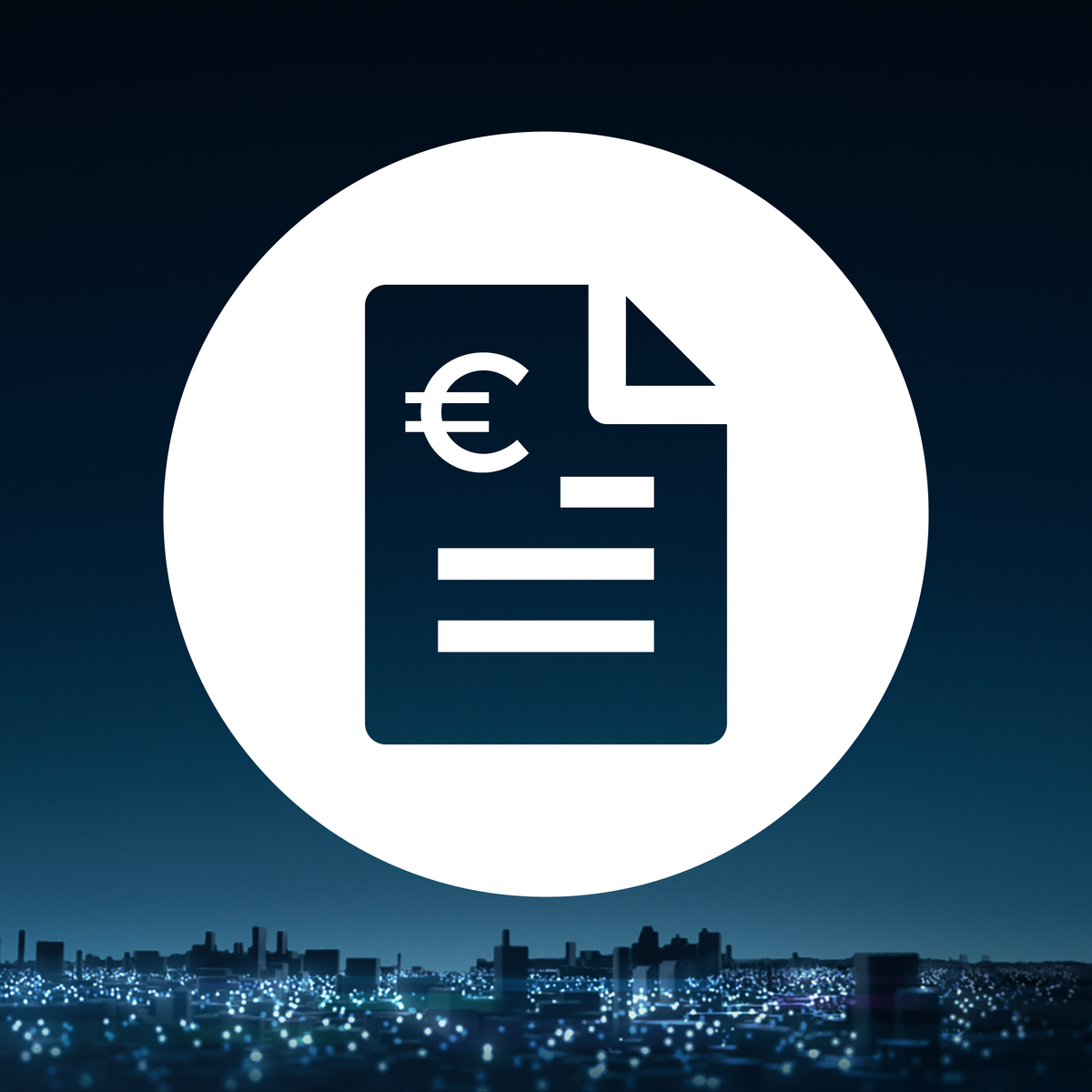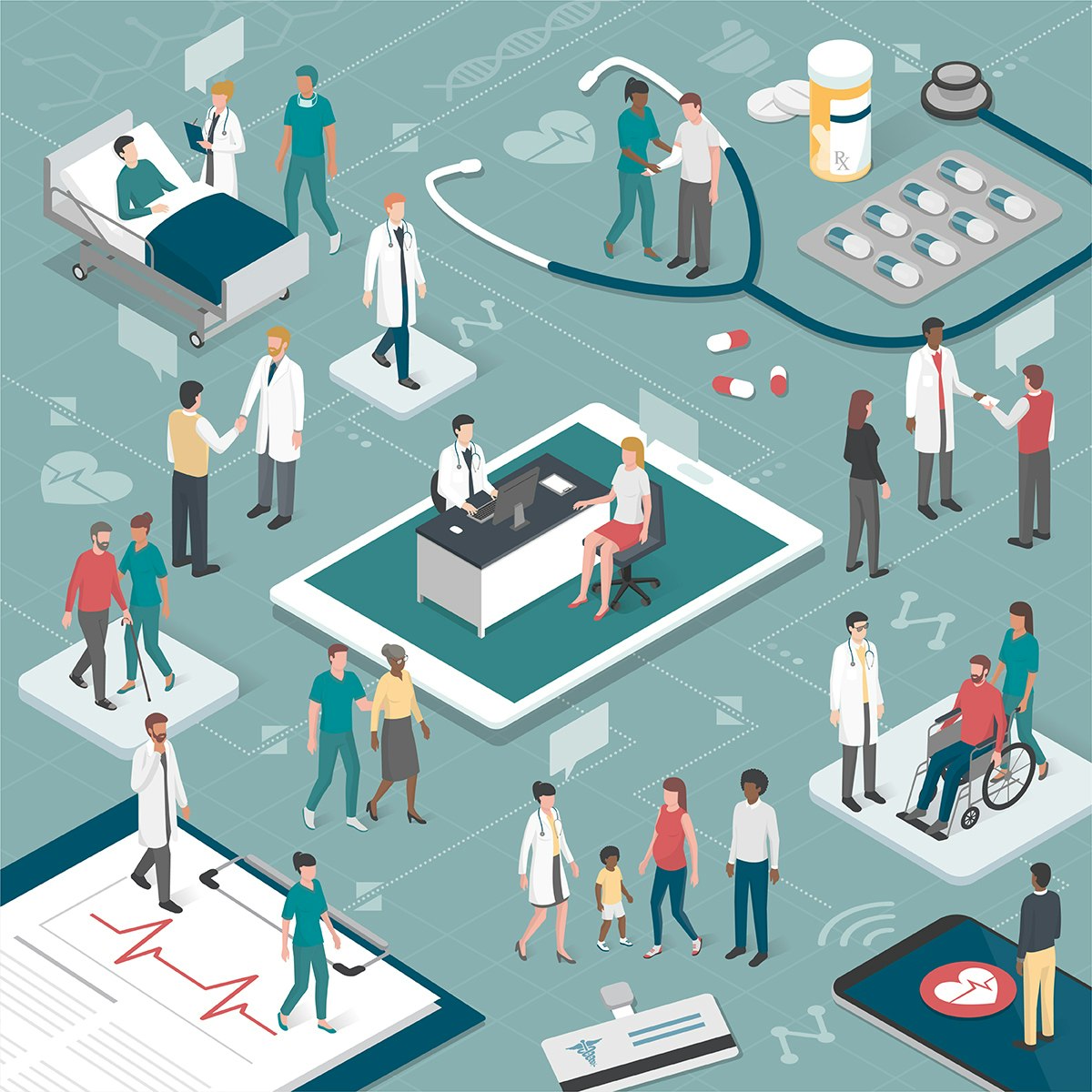Healthcare Data Analyst
vigating the World of Healthcare Data Analytics
A Healthcare Data Analyst is a professional who leverages data to enhance healthcare outcomes, streamline processes, and inform strategic decisions within the healthcare sector. These analysts work on the business side of medicine, collecting, managing, and scrutinizing data from diverse sources like electronic health records (EHRs), insurance claims, clinical trials, and patient surveys. The insights they generate help healthcare executives, providers, and administrators make informed choices to improve patient care, optimize operational efficiency, and achieve business objectives.
The field of healthcare data analytics offers a compelling intersection of technology and healthcare, providing opportunities to make a tangible positive impact on people's lives. Analysts in this field might find themselves forecasting patient admissions, identifying patterns in disease outbreaks, assessing the effectiveness of treatments, or helping to reduce healthcare costs. The dynamic nature of healthcare, combined with the ever-growing volume and complexity of data, ensures that the work is both challenging and stimulating.
Introduction to the Healthcare Data Analyst Role
This section delves into the foundational knowledge about the Healthcare Data Analyst profession. It aims to provide a clear understanding of what the role entails and its significance in the broader healthcare landscape. Ambitious individuals exploring career paths, including students, career changers, and professionals looking to specialize in data roles within healthcare, will find this information particularly useful.
Defining the Role and Its Scope
A Healthcare Data Analyst is fundamentally a problem-solver who uses data to answer critical questions within the healthcare domain. Their primary function is to collect, clean, analyze, and interpret vast amounts of healthcare-related data. This data can originate from various sources, including patient medical records, insurance claims, clinical trial results, and even wearable health devices. The scope of their work is broad, encompassing tasks like identifying trends in patient outcomes, evaluating the efficiency of healthcare processes, and contributing to public health research.
These professionals bridge the gap between raw data and actionable intelligence. They transform complex datasets into understandable and meaningful information that can be used by clinicians, hospital administrators, policymakers, and other stakeholders to make better decisions. For example, an analyst might develop reports that highlight areas for cost reduction in a hospital or create visualizations that help doctors understand the effectiveness of different treatment protocols. Ultimately, their work contributes to improving the quality of care, enhancing patient safety, and optimizing the use of healthcare resources.
The role is not solely technical; it also requires a strong understanding of the healthcare ecosystem. This includes familiarity with medical terminology, healthcare workflows, and regulatory requirements like patient data privacy laws. Healthcare Data Analysts often work in multidisciplinary teams, collaborating with IT professionals, clinicians, and administrative staff to ensure that data-driven insights align with organizational goals.
For those looking to build a foundational understanding of how data is used in healthcare and the unique considerations of this industry, several online courses can provide an excellent starting point. These courses often cover the various types of healthcare data and the growing importance of data literacy in this field.
These books offer deeper insights into the foundational aspects of health informatics and biostatistics, crucial for anyone looking to understand the context in which healthcare data analysts operate.
Understanding the broader field of healthcare data can be beneficial.
Key Industries Employing Healthcare Data Analysts
Healthcare Data Analysts are in demand across a variety of organizations within the healthcare sector. Hospitals, clinics, and physician's offices represent a significant portion of employers, where analysts help optimize patient care and streamline operations. Insurance companies also heavily rely on these professionals to analyze claims data, manage risk, and determine affordable premiums.
Pharmaceutical companies and medical device manufacturers employ healthcare data analysts to support research and development, analyze clinical trial data, and assess product effectiveness. Government agencies at the federal, state, and local levels hire analysts for public health initiatives, policy making, and tracking population health trends. Furthermore, healthcare IT organizations and consulting firms seek analysts to develop and implement data solutions for their clients.
The rise of electronic health records (EHRs) and other digital health tools has expanded the need for data analysts in virtually every corner of the healthcare industry. Non-profit health-focused organizations also utilize data analysts to support their missions and research endeavors. This diverse range of employers underscores the versatility and growing importance of this analytical role in the modern healthcare landscape. As healthcare continues to become more data-driven, the opportunities for skilled analysts are expected to expand further.
To gain a better understanding of the various data systems and information flow within healthcare organizations, exploring courses on health information systems can be very insightful.
The Importance of Data-Driven Decision-Making in Healthcare
Data-driven decision-making (DDDM) is transforming the healthcare industry by enabling providers and administrators to move beyond intuition and anecdotal evidence, basing their choices on robust data analysis. This approach leads to more precise diagnoses, personalized treatment plans, and improved patient outcomes. By analyzing vast quantities of data, healthcare organizations can identify trends, predict potential health risks, and allocate resources more effectively.
The application of DDDM in healthcare yields numerous benefits. It supports clinical treatment decisions by providing evidence for the efficacy of different interventions and can speed up the development of new drugs. It also helps in reducing disease risk by identifying at-risk communities and enabling targeted preventive care. Operationally, data analytics can streamline processes, enhance efficiency, reduce costs, and even lessen burnout among clinical staff.
Ultimately, the goal of DDDM in healthcare is to take the guesswork out of critical decisions, leading to improved quality of care, better patient satisfaction, and a more efficient healthcare system overall. As the volume of healthcare data continues to explode, the ability to harness this information for informed decision-making is becoming increasingly crucial for all healthcare stakeholders. Organizations that embrace a data-driven culture are better positioned to adapt to the evolving healthcare landscape and deliver higher value care.
Courses that focus on how data is used to improve healthcare and drive decisions can provide a strong foundation in this critical area.
Books focusing on the application of analytics in healthcare can offer practical insights.
For those interested in how large datasets are revolutionizing healthcare, this topic is highly relevant.
Core Responsibilities of Healthcare Data Analysts
Understanding the day-to-day tasks of a Healthcare Data Analyst is essential for anyone considering this career path. This section outlines the primary duties, offering clarity to job seekers and professionals looking to transition into healthcare analytics. These responsibilities highlight how analysts transform raw data into meaningful insights that drive improvements in healthcare delivery.
Data Collection and Cleaning Processes
A significant part of a Healthcare Data Analyst's role involves gathering data from a multitude of sources. This can include electronic health records (EHRs), patient billing systems, insurance claims databases, clinical trial management systems, and even external sources like public health datasets. The initial data collected is often raw, disparate, and may contain errors or inconsistencies. Therefore, a critical next step is data cleaning and preparation.
Data cleaning, also known as data wrangling or data scrubbing, is the process of identifying and correcting inaccuracies, inconsistencies, and missing values within datasets. This meticulous process ensures the data's quality, reliability, and suitability for analysis. Tasks may include removing duplicate records, standardizing data formats (e.g., dates, medical codes), handling missing information appropriately, and validating data against known standards. Effective data cleaning is crucial because the accuracy of any subsequent analysis and the validity of the insights derived depend heavily on the quality of the input data.
Analysts also play a role in managing and organizing these large datasets, often utilizing database management systems. They need to understand data storage and sharing methods to ensure data integrity and accessibility for authorized users. This foundational work of collecting and cleaning data lays the groundwork for all further analytical tasks.
These courses offer practical skills in handling and preparing data, which are fundamental aspects of a healthcare data analyst's responsibilities.
Understanding how healthcare data is managed and governed is key to effective collection and cleaning.
Statistical Analysis and Predictive Modeling
Once data is collected and cleaned, Healthcare Data Analysts apply statistical methods to identify patterns, trends, correlations, and insights. This involves using various statistical techniques to analyze treatment effectiveness, patient outcomes, healthcare utilization, and operational efficiencies. They might perform descriptive statistics to summarize data, inferential statistics to draw conclusions about larger populations based on samples, and regression analysis to understand relationships between variables.
A key aspect of this role is leveraging predictive modeling to forecast future events or outcomes. For example, analysts might build models to predict patient admissions, disease outbreaks, the likelihood of hospital readmissions, or even identify patients at high risk for certain conditions. These predictive insights enable healthcare organizations to proactively allocate resources, implement preventative measures, and improve patient care strategies.
This often involves using programming languages like R or Python, along with statistical software packages such as SPSS or SAS. The ability to select appropriate analytical techniques, correctly interpret statistical results, and understand the limitations of the models is paramount. This analytical rigor ensures that the conclusions drawn are sound and can reliably inform decision-making.
To develop skills in statistical analysis and its application in healthcare, these courses are highly recommended. They cover foundational concepts and practical applications using relevant tools.
These books provide comprehensive knowledge on predictive analytics and biostatistics, which are central to this aspect of the role.
Understanding the core principles of statistics is fundamental for any data analyst.
Visualization and Reporting for Stakeholders
A crucial responsibility of Healthcare Data Analysts is to communicate their findings effectively to various stakeholders. This often involves translating complex data and analytical results into clear, concise, and actionable reports and visualizations. Stakeholders can range from clinicians and hospital administrators to policymakers and executives, each with different levels of technical understanding.
Analysts use data visualization tools like Tableau, Power BI, or even advanced features in Excel to create dashboards, charts, and graphs that illustrate trends, patterns, and key performance indicators. These visual representations make it easier for stakeholders to grasp complex information quickly and make informed decisions. The ability to tell a compelling story with data is a key skill in this domain.
Beyond creating visuals, analysts are often responsible for preparing detailed reports and presentations that summarize their analyses, explain their methodologies, and provide recommendations for improvement. This requires strong written and verbal communication skills, as well as the ability to tailor the message to the specific audience. Clear and effective communication ensures that the valuable insights generated through data analysis are understood and acted upon, ultimately driving positive change within the healthcare system.
These courses focus on the critical skills of data visualization and reporting, enabling analysts to effectively communicate insights from healthcare data.
Books dedicated to data visualization in the healthcare context can provide specialized knowledge and best practices.
Essential Skills and Tools
To succeed as a Healthcare Data Analyst, a unique blend of technical proficiency, healthcare-specific knowledge, and strong soft skills is necessary. This section details the crucial competencies and tools that aspiring analysts and upskilling professionals should focus on. Mastering these skills is key to effectively bridging the gap between the complex world of data and the practical needs of the healthcare domain.
Technical Skills (SQL, Python, R, Tableau)
A strong foundation in technical skills is paramount for any Healthcare Data Analyst. Proficiency in SQL (Structured Query Language) is essential for interacting with and manipulating databases, which are the primary repositories of healthcare data. Analysts use SQL to extract, filter, aggregate, and manage large datasets.
Programming languages such as Python and R are widely used for statistical analysis, data mining, and developing machine learning models. Python's versatility and extensive libraries (like Pandas for data manipulation and Scikit-learn for machine learning) make it a popular choice, while R is particularly strong for complex statistical computations and visualizations. Familiarity with Microsoft Excel for data manipulation and basic analysis is also commonly expected.
Furthermore, expertise in data visualization tools is critical for presenting findings in an accessible manner. Tools like Tableau, Power BI, and D3.js allow analysts to create interactive dashboards and compelling visual reports that help stakeholders understand complex data trends and insights. A solid grasp of relational databases and ETL (Extract, Transform, Load) processes is also beneficial for managing data workflows.
These courses provide comprehensive training in the essential technical tools used by healthcare data analysts, from database management with SQL to data analysis and visualization with Python, R, and Tableau.
For those looking to build their programming skills, OpenCourser offers a wide range of courses in Programming.
Healthcare-Specific Knowledge (ICD Codes, EHR Systems)
Beyond general data analysis skills, Healthcare Data Analysts must possess domain-specific knowledge relevant to the healthcare industry. This includes an understanding of medical terminology, common healthcare processes, and various clinical classification systems. Familiarity with coding systems like ICD (International Classification of Diseases) codes, which are used for diagnosing and billing, is often crucial for interpreting and analyzing medical data accurately.
Experience with Electronic Health Record (EHR) systems, such as Epic or Cerner, is highly valuable. EHRs are primary sources of patient data, and understanding their structure, data elements, and how information is captured is essential for effective data extraction and analysis. Knowledge of healthcare regulations and rules, particularly concerning data privacy and security like HIPAA (Health Insurance Portability and Accountability Act) and HL7 (Health Level Seven) standards for data exchange, is also critical.
This specialized knowledge allows analysts to understand the context of the data they are working with, ask relevant questions, and derive meaningful insights that are truly applicable to improving healthcare delivery and patient outcomes. It helps bridge the gap between the technical aspects of data analysis and the practical realities of the healthcare environment.
Gaining familiarity with healthcare-specific data types, standards, and systems is crucial. These courses offer introductions to health informatics and the intricacies of healthcare data.
Books focusing on health informatics and information systems provide essential background knowledge for analysts working with healthcare-specific data.
Key topics in this area include understanding specific healthcare data standards and systems.
Soft Skills for Cross-Functional Collaboration
In addition to technical and domain-specific knowledge, strong soft skills are essential for Healthcare Data Analysts to succeed. Effective written and verbal communication abilities are paramount, as analysts must clearly convey complex findings to diverse audiences, including those without a technical background. This includes the ability to present data-driven stories compellingly and make persuasive recommendations.
Critical thinking and problem-solving skills are vital for dissecting complex healthcare challenges, formulating relevant analytical questions, and developing innovative solutions. Attention to detail is crucial, particularly when dealing with sensitive patient data and ensuring the accuracy of analyses. Healthcare Data Analysts often work in team environments, collaborating with clinicians, IT staff, administrators, and other stakeholders. Therefore, strong interpersonal skills, teamwork, and the ability to build effective working relationships are key.
Time management and organizational skills are also important for managing multiple projects, meeting deadlines, and prioritizing tasks effectively in a fast-paced environment. An enthusiasm for working at the intersection of healthcare and technology, coupled with a desire for continuous learning, will also serve analysts well as the field rapidly evolves.
Developing strong leadership and communication skills is important for collaborating effectively within healthcare teams. These courses can help enhance those abilities.
Formal Education Pathways
For individuals, particularly high school students and undergraduates, planning a career as a Healthcare Data Analyst, understanding the typical educational routes is crucial. This section outlines relevant degree programs and academic opportunities that can build a strong foundation for long-term success and growth in this specialized field of healthcare analytics.
Relevant Bachelor's Degrees (Public Health, Biostatistics)
A bachelor's degree is typically the minimum educational requirement for entry-level Healthcare Data Analyst positions. Several fields of study can provide the necessary foundational knowledge. Degrees in Data Science, Statistics, Health Informatics, Information Technology, and Computer Science are common pathways. These programs equip students with essential analytical, technical, and problem-solving skills.
Degrees with a more direct healthcare focus are also highly relevant. A Bachelor of Science in Public Health can provide a strong understanding of health systems, epidemiology, and population health principles, which are valuable in analyzing health trends and outcomes. Similarly, a degree in Biostatistics offers rigorous training in statistical methods specifically applied to biological and health-related data. Other related degrees include Health Information Management and Healthcare Administration.
Regardless of the specific major, coursework should ideally cover mathematics, statistics, database management, programming, and an introduction to healthcare systems and medical terminology. Aspiring analysts should look for programs that offer opportunities to work with real-world datasets and analytical tools. Building a strong academic foundation in one of these areas will position graduates well for a career in healthcare data analytics.
For those starting their educational journey, foundational courses in data literacy and the intersection of data science and health informatics are excellent choices.
A solid understanding of biostatistics is crucial for roles involving health research and epidemiology.
Advanced Degrees for Specialized Roles
While a bachelor's degree is often sufficient for entry-level positions, pursuing an advanced degree can open doors to more specialized roles, leadership opportunities, and potentially higher salaries in healthcare data analytics. Around 22% of healthcare data analysts hold a master's degree, with an additional 4% having a doctorate. A master's degree can provide deeper technical expertise and management skills.
Relevant master's programs include a Master of Science in Healthcare Analytics, Health Informatics, Data Science (with a healthcare concentration), or Biostatistics. A Master of Public Health (MPH) with a focus on epidemiology or health data analysis can also be highly beneficial, particularly for roles in population health or public policy. For those interested in the business and management aspects, an MBA with a concentration in healthcare management can provide valuable skills.
Advanced degrees often involve more in-depth research, complex analytical projects, and opportunities to specialize in areas like predictive modeling, health economics, or clinical informatics. This advanced training can be particularly advantageous for individuals aiming for roles such as Senior Data Analyst, Data Scientist, or Healthcare Informatics Manager. Carefully consider your career goals when deciding whether an advanced degree is the right path for you.
For those considering advanced studies, courses that delve into specialized areas like deep learning in healthcare or the strategic application of analytics can be beneficial.
Advanced texts on topics like precision medicine and Bayesian analysis can support specialized learning paths.
Capstone Projects and Research Opportunities
Engaging in capstone projects and research opportunities during one's academic journey can significantly enhance a prospective Healthcare Data Analyst's profile. These experiences provide invaluable hands-on application of theoretical knowledge and analytical skills to real-world or simulated healthcare problems. Capstone projects, often a requirement in undergraduate or graduate programs, allow students to manage an analytical project from start to finish, including defining the problem, collecting and cleaning data, performing analysis, and presenting findings.
Research opportunities, whether through assistantships with faculty, internships, or independent studies, offer a chance to delve deeper into specific areas of healthcare analytics. This could involve working with large, complex datasets, contributing to published research, or developing novel analytical methodologies. Such experiences not only build technical proficiency but also demonstrate initiative, critical thinking, and the ability to contribute to meaningful healthcare advancements.
These practical experiences are highly valued by employers as they showcase a candidate's ability to translate academic learning into tangible results. They also provide excellent material for a portfolio and talking points for interviews, helping to differentiate candidates in a competitive job market. Seeking out and actively participating in such projects is a strong recommendation for any student aiming for a successful career in healthcare data analytics.
Capstone projects allow students to apply their accumulated knowledge to a significant, real-world problem. These specialized courses offer such an experience in the context of AI in healthcare and data-driven leadership.
For those interested in exploring data science more broadly, perhaps as a precursor to specializing in healthcare, OpenCourser offers many options in Data Science.
Online Learning and Certifications
For individuals looking to transition into healthcare data analytics or professionals seeking to validate and enhance their existing skills, online learning platforms and industry certifications offer accessible and credible pathways. This section explores these valuable resources, highlighting how they can help non-traditional learners gain the necessary knowledge and credentials to succeed in this dynamic field.
Online courses offer a flexible and often more affordable way to acquire the specific skills needed for a Healthcare Data Analyst role. Many reputable universities and industry leaders provide specialized courses and even full certificate programs in healthcare analytics, data science, and related areas. These programs can cover everything from foundational statistical concepts and programming languages like SQL, Python, and R, to advanced topics such as machine learning, predictive modeling, and the use of specific healthcare data tools and EHR systems. OpenCourser, for example, is an excellent resource for finding and comparing a vast array of online courses related to healthcare data analytics from various providers.
One of the key advantages of online learning is the ability to learn at your own pace and often on your own schedule, which is particularly beneficial for those balancing studies with work or other commitments. Furthermore, many online courses incorporate hands-on projects using real-world or simulated datasets, allowing learners to build practical skills and develop a portfolio of work. This practical experience is highly valued by employers and can significantly enhance a candidate's job prospects, especially for those transitioning from other fields. When selecting online courses, it's advisable to look for programs offered by well-regarded institutions or those that align with industry-recognized competencies. Exploring the Health & Medicine or Data Science categories on OpenCourser can be a great starting point to discover relevant learning opportunities.
Platforms Offering Healthcare Analytics Courses
Numerous online platforms provide a wide array of courses specifically designed for or highly relevant to healthcare data analytics. Platforms like Coursera and edX host courses from top universities and industry leaders, covering topics from foundational data science skills to specialized healthcare informatics and analytics. These platforms often offer individual courses, specializations (a series of related courses), and even online degrees.
Other platforms, like Udemy, offer a vast marketplace of courses taught by industry professionals, which can be a good source for learning specific tools or techniques. Professional organizations such as AHIMA (American Health Information Management Association) also provide online training and resources focused on health data analytics and informatics. When choosing a platform and course, consider factors like the reputation of the institution or instructor, the course curriculum, the hands-on components, and whether it offers a certificate of completion or contributes to a recognized credential.
Many of these platforms allow you to easily browse through thousands of courses, compare syllabi, read reviews, and even save interesting options to a list for later consideration. This makes it easier to find courses that align with your specific learning goals and career aspirations in healthcare data analytics. Utilizing these resources effectively can significantly accelerate your journey into the field.
These courses offer comprehensive introductions and specializations in healthcare data analytics, provided by reputable institutions and accessible online.
Books that offer a broad overview of health informatics and practical guides to healthcare data are excellent companions to online learning.
Focusing on data literacy within the healthcare context is a crucial first step.
Industry-Recognized Certifications (e.g., CPHIMS)
Industry-recognized certifications can significantly boost a Healthcare Data Analyst's credibility and marketability. These credentials validate an individual's knowledge and skills in specific areas of healthcare data management, analysis, or information systems. For career changers or those with non-traditional educational backgrounds, certifications can be a powerful way to demonstrate competence to potential employers.
One notable certification is the Certified Professional in Healthcare Information and Management Systems (CPHIMS), offered by the Healthcare Information and Management Systems Society (HIMSS). The CPHIMS credential validates expertise in healthcare information and management systems, covering areas like healthcare IT, data analytics, privacy, and security. Another valuable certification is the Certified Health Data Analyst (CHDA) from AHIMA, which specifically recognizes expertise in health data analysis, interpretation, and transformation of data into actionable insights.
Other relevant certifications include the Certified Associate in Healthcare Information and Management Systems (CAHIMS), also from HIMSS, which is an entry-level certification ideal for those starting their careers in healthcare IT. Some general data analytics certifications, like the Certified Analytics Professional (CAP), can also be beneficial. Eligibility requirements for these certifications typically involve a combination of education and relevant work experience, and passing an examination. Pursuing such certifications demonstrates a commitment to professional development and can lead to better career opportunities and potentially higher salaries. If you are looking for ways to save on certification preparation materials or exam fees, be sure to check the OpenCourser deals page for any relevant offers.
These courses can help prepare individuals for industry certifications by covering relevant topics in health informatics and data management.
To learn more about how to effectively showcase your certifications, you might find helpful articles in the OpenCourser Learner's Guide on topics like adding credentials to your resume or LinkedIn profile.
Building Portfolio Projects with Real-World Datasets
For aspiring Healthcare Data Analysts, especially those entering the field or transitioning from other careers, building a strong portfolio of projects is crucial. A well-curated portfolio demonstrates practical skills, analytical thinking, and the ability to work with healthcare-related data to solve real problems. This tangible evidence of your capabilities can often speak louder than just a resume or academic qualifications.
Seek out opportunities to work with publicly available real-world datasets related to healthcare. Numerous government agencies, research institutions, and organizations like the World Health Organization (WHO) or Centers for Disease Control and Prevention (CDC) provide anonymized datasets for public use. These datasets can cover a wide range of topics, from disease prevalence and treatment outcomes to healthcare expenditures and population health metrics.
Your portfolio projects should showcase a range of analytical skills, including data collection and cleaning, exploratory data analysis, statistical modeling, and data visualization. For example, you could analyze trends in a specific disease, build a predictive model for hospital readmissions, or create an interactive dashboard visualizing healthcare disparities. Clearly document your methodology, the tools you used (e.g., Python, R, SQL, Tableau), and the insights you derived. Explaining the "why" behind your analytical choices and the implications of your findings is just as important as the technical execution. Sharing your projects on platforms like GitHub or creating a personal portfolio website can make your work easily accessible to potential employers. Many online courses also incorporate portfolio-building projects, which can be an excellent way to get started.
Engaging in project-based courses is an excellent way to build a portfolio. These courses often guide learners through the process of analyzing real or realistic healthcare datasets to solve specific problems.
Books that focus on practical applications and hands-on exercises with healthcare data can provide inspiration and guidance for portfolio projects.
Career Progression for Healthcare Data Analysts
Understanding the potential career trajectory is important for early-career professionals and those managing analytical teams. This section maps out the typical advancement paths for Healthcare Data Analysts, from entry-level roles to leadership positions. This provides a realistic view of growth milestones and opportunities within this specialized field.
Entry-Level Roles (Data Coordinator, Clinical Analyst)
Individuals starting their careers in healthcare data analytics often begin in roles such as Data Coordinator, Clinical Analyst, Junior Data Analyst, or Healthcare Information Management Analyst. In these entry-level positions, the primary focus is on supporting more senior analysts and learning the fundamentals of healthcare data. Responsibilities typically include data collection, data entry, basic data cleaning, generating routine reports, and assisting with data validation.
A Data Coordinator might be responsible for managing and maintaining specific datasets, ensuring data accuracy and completeness. A Clinical Analyst might focus more on data related to patient care processes, quality improvement initiatives, or clinical research support within a hospital or clinic setting. These roles provide crucial hands-on experience with healthcare data sources (like EHRs), analytical tools, and the specific regulatory environment of healthcare.
These positions serve as a vital stepping stone, allowing individuals to build their technical skills (e.g., in SQL, Excel, and basic statistical analysis), develop their understanding of healthcare operations, and gain exposure to the types of analytical problems faced by healthcare organizations. Success in these roles often hinges on attention to detail, a willingness to learn, and good organizational skills. From here, with experience and continued skill development, analysts can progress to more senior analytical positions.
Foundational courses in healthcare data and informatics are excellent for those targeting entry-level roles, providing essential knowledge and skills.
Entry-level professionals may find it beneficial to understand the broader context of data analysis.
Mid-Career Paths (Senior Analyst, Team Lead)
After gaining several years of experience (typically 4-8 years in business intelligence or data analysis roles) and demonstrating proficiency in data analysis, technical skills, and healthcare domain knowledge, Healthcare Data Analysts can advance to mid-career positions. Common titles at this stage include Senior Healthcare Data Analyst, Lead Data Analyst, or Analytics Team Lead. In these roles, individuals take on more complex analytical projects, often with greater autonomy and responsibility.
Senior Analysts are expected to not only perform sophisticated data analysis and predictive modeling but also to mentor junior analysts, contribute to the development of analytical strategies, and present findings and recommendations to higher-level management and clinical leaders. They may specialize in particular areas, such as population health analytics, healthcare economics, or clinical effectiveness. A Team Lead would additionally have responsibilities for managing a small group of analysts, overseeing project timelines, and ensuring the quality of the team's deliverables.
Strong project management skills, advanced analytical capabilities, and excellent communication and leadership qualities are crucial for success at this stage. Many professionals in these roles may also pursue advanced certifications or a master's degree to further enhance their expertise and career prospects. This mid-career phase is often characterized by a deeper specialization and a greater impact on organizational decision-making.
For those aiming for mid-career roles, courses that offer advanced analytical techniques and strategic thinking in healthcare are valuable.
Books covering advanced analytics and the management of healthcare information systems are relevant for this career stage.
At this stage, analysts might be looking at roles with more responsibility and specialization.
Leadership Opportunities (Director of Analytics)
With significant experience (often 5-7 years or more in healthcare, IT, or informatics roles), a proven track record of impactful analytical work, and strong leadership capabilities, Healthcare Data Analysts can progress into senior leadership positions. Titles at this level might include Director of Analytics, Healthcare Informatics Manager, Head of Healthcare Data Science, or even Chief Information Officer (CIO) in some organizations.
In these leadership roles, the focus shifts from hands-on data analysis to strategic oversight, team management, and driving the overall data analytics vision for the organization. Responsibilities often include developing and implementing data governance policies, overseeing the adoption of new analytical technologies and methodologies, managing departmental budgets, and collaborating with executive leadership to align analytical initiatives with broader organizational goals. They ensure that medical data is accurately gathered, safely stored, and used in the organization's best interests.
A deep understanding of the healthcare industry, regulatory landscape, and emerging technological trends is essential. Strong leadership, strategic thinking, communication, and stakeholder management skills are paramount. Professionals in these roles often hold advanced degrees (e.g., Master's in Health Informatics, MBA) and multiple industry certifications. They play a critical role in shaping how healthcare organizations leverage data to improve patient care, optimize operations, and drive innovation.
Leadership roles require a strong understanding of strategic management and informatics. These courses can help develop those competencies.
Advanced roles often require a broader understanding of how data science impacts business and strategy.
Industry Applications and Specializations
The skills of a Healthcare Data Analyst are applicable across a wide spectrum of subfields within the healthcare industry. This versatility allows analysts to target specific sectors that align with their interests and career goals. This section demonstrates the diverse applications of healthcare data analytics, from optimizing hospital workflows to advancing pharmaceutical research and managing the health of entire populations.
Hospital Operations Optimization
Healthcare Data Analysts play a crucial role in optimizing hospital operations to improve efficiency, reduce costs, and enhance patient care. By analyzing data related to patient flow, resource utilization (such as staffing, equipment, and supplies), wait times, and length of stay, analysts can identify bottlenecks and areas for improvement within hospital workflows. For example, data insights can inform better scheduling of surgeries, optimize bed management, and streamline emergency department processes.
Analysts may also examine financial data to identify cost-saving opportunities without compromising the quality of care, such as by optimizing supply chain management or reducing readmission rates through better post-discharge care coordination. Data on patient safety incidents can be analyzed to identify root causes and implement preventative measures. Furthermore, by tracking key performance indicators (KPIs) related to operational efficiency, analysts help hospital administrators monitor progress towards strategic goals and make data-informed adjustments to their strategies.
The ultimate aim is to create a more efficient, cost-effective, and patient-centered hospital environment. This often involves working closely with clinical staff, department managers, and hospital leadership to implement data-driven changes and monitor their impact.
Courses focusing on improving healthcare delivery and operational efficiency are highly relevant for this specialization.
Books on performance improvement and managing healthcare information systems are valuable for analysts in hospital operations.
Pharmaceutical R&D Analytics
In the pharmaceutical sector, Healthcare Data Analysts contribute significantly to research and development (R&D) by analyzing complex datasets to accelerate drug discovery, optimize clinical trials, and assess drug efficacy and safety. They work with vast amounts of data from preclinical research, genomic studies, clinical trial results, and post-marketing surveillance.
Analysts in this specialization might use their skills to identify potential drug targets, design more efficient clinical trial protocols, analyze patient stratification data to identify subgroups who might benefit most from a particular therapy, or monitor adverse event reporting to ensure patient safety. Predictive modeling can be used to forecast the likelihood of a drug's success in clinical trials or to identify patients most likely to respond to a specific treatment.
Furthermore, data analytics plays a role in understanding market trends, optimizing drug supply chains, and supporting regulatory submissions. The insights generated by these analysts help pharmaceutical companies make more informed decisions throughout the drug development lifecycle, ultimately aiming to bring new, effective, and safe treatments to patients more quickly and efficiently. This field often requires a strong understanding of biostatistics, clinical trial methodologies, and relevant regulatory guidelines.
For those interested in the pharmaceutical and research aspects of healthcare analytics, courses that touch upon clinical trials, drug development, and bioinformatics are pertinent.
Understanding bioinformatics is key for analysts in pharmaceutical R&D.
Population Health Management
Healthcare Data Analysts specializing in population health management focus on analyzing data to understand and improve the health outcomes of specific groups of people. This involves collecting and integrating data from various sources, including EHRs, claims data, public health surveys, and even socio-economic and environmental data, to get a comprehensive view of a population's health status and risk factors.
Analysts in this area identify health trends, disparities, and high-risk subgroups within a population. For instance, they might analyze data to pinpoint geographic areas with high rates of chronic diseases like diabetes or hypertension, or identify populations facing barriers to accessing healthcare services. This information is crucial for designing targeted interventions, public health campaigns, and preventive care programs aimed at improving overall community health and reducing health inequities.
Predictive analytics is often used to forecast disease outbreaks, identify individuals at high risk of developing certain conditions, and assess the potential impact of different health interventions. By providing actionable insights to healthcare providers, public health officials, and policymakers, these analysts play a vital role in shifting the focus from reactive treatment to proactive health management and prevention at a community or population level.
These courses are designed for individuals interested in using data to understand and improve the health of populations, covering topics like disease control, value-based care, and public health informatics.
Books on public health informatics provide essential knowledge for this specialization.
A career as a Data Scientist often involves working with large population datasets, a skill directly transferable to population health management.
Ethical Challenges in Healthcare Analytics
Working with sensitive health data brings a unique set of ethical responsibilities and challenges. This section addresses the critical compliance and ethical considerations that all professionals handling healthcare data must navigate. Understanding these issues is paramount for maintaining patient trust and ensuring the responsible use of powerful analytical tools.
Patient Privacy Regulations (HIPAA, GDPR)
Healthcare Data Analysts operate within a strict regulatory framework designed to protect patient privacy and the confidentiality of health information. Two of the most prominent regulations are the Health Insurance Portability and Accountability Act (HIPAA) in the United States and the General Data Protection Regulation (GDPR) in Europe. HIPAA establishes national standards for the protection of individuals' medical records and other identifiable health information (Protected Health Information or PHI). It applies to healthcare providers, health plans, and healthcare clearinghouses, as well as their business associates.
GDPR is a comprehensive data privacy law that applies to organizations processing the personal data of individuals within the European Union, regardless of where the organization is based. It sets out strict rules for collecting, using, storing, and sharing personal data, including health data, and grants individuals significant rights over their information, such as the right to access and the right to be forgotten. Both HIPAA and GDPR mandate robust data security measures, require notification in case of data breaches, and impose significant penalties for non-compliance.
Healthcare Data Analysts must be well-versed in these regulations and ensure that all their data handling and analytical activities comply with the applicable legal and ethical requirements. This includes understanding what constitutes identifiable information, implementing appropriate de-identification techniques when necessary, adhering to principles of data minimization (collecting only necessary data), and ensuring that data is used only for authorized purposes with appropriate consent where required. Staying informed about these complex and evolving regulations is an ongoing responsibility.
Understanding data privacy regulations is crucial. These courses provide insights into HIPAA and the broader aspects of healthcare data security and governance.
Books on healthcare data privacy can offer in-depth understanding of the legal and ethical landscape.
Key topics include the specific regulations and the broader concepts of data security and privacy in healthcare.
Bias Mitigation in Predictive Models
A significant ethical challenge in healthcare analytics, particularly with the rise of artificial intelligence (AI) and machine learning, is the potential for bias in predictive models. Predictive models are trained on historical data, and if this data reflects existing societal biases or health disparities related to race, gender, socioeconomic status, or other demographic factors, the models can inadvertently perpetuate or even amplify these biases. This can lead to inequitable healthcare outcomes, such as misdiagnosis, inappropriate treatment recommendations, or unfair allocation of resources for certain patient groups.
Healthcare Data Analysts have an ethical responsibility to be aware of these potential biases and take proactive steps to mitigate them. This involves carefully examining the data used for model training to identify and address any inherent biases. It also includes selecting appropriate algorithms and model evaluation metrics that consider fairness and equity, not just overall accuracy. Techniques such as re-sampling underrepresented groups, using bias-aware machine learning algorithms, and conducting fairness audits on model outputs can help in this regard.
Transparency in model development and ongoing monitoring of model performance across different demographic groups are also crucial. Analysts must critically assess whether their models are performing equitably and take corrective action if biases are detected. The goal is to ensure that analytical tools are used to promote health equity and provide fair and effective care for all individuals, avoiding the creation or exacerbation of health disparities through biased algorithms.
Courses that address the ethical application of AI and machine learning in healthcare, including discussions on bias, are important for developing responsible analytical practices.
Understanding Generative Adversarial Networks can be relevant for more advanced techniques in data augmentation and bias mitigation, though it's a specialized area.
Balancing Data Utility with Confidentiality
Healthcare Data Analysts constantly navigate the delicate balance between maximizing the utility of health data for improving care and research, and upholding the stringent requirements of patient confidentiality. Health data is incredibly valuable for identifying disease patterns, evaluating treatment effectiveness, optimizing healthcare operations, and advancing medical knowledge. However, this data is also highly sensitive and personal, and its unauthorized disclosure can lead to significant harm, including discrimination, stigmatization, and loss of trust in the healthcare system.
Analysts employ various techniques to protect patient confidentiality while still enabling meaningful analysis. De-identification, which involves removing or masking personally identifiable information (PII) from datasets, is a common approach. Data aggregation, where data is summarized at a group level rather than an individual level, can also protect privacy. Secure data environments, access controls, and encryption are technical safeguards used to prevent unauthorized access.
The ethical challenge lies in determining the appropriate level of data transformation or restriction to protect privacy without unduly diminishing the data's usefulness for beneficial purposes. This often requires careful consideration of the specific analytical goals, the sensitivity of the data elements involved, and the potential risks of re-identification. Robust data governance policies, ethical review boards, and a culture of data stewardship within healthcare organizations are essential to guide analysts in making these critical judgments responsibly. Prioritizing ethical standards and patient rights is fundamental to maintaining public trust and ensuring that data analytics serves the best interests of both individuals and society.
Courses focusing on data governance and security specifically within the healthcare context are vital for understanding how to manage this balance.
Books on health data governance can provide deeper insights into establishing ethical frameworks.
Understanding the principles of healthcare data governance is key to navigating these complex ethical issues.
Emerging Trends and Technologies
The field of healthcare data analytics is constantly evolving, driven by rapid technological advancements and shifting industry paradigms. Analysts preparing for the future must stay abreast of these emerging trends and technologies. This section highlights key developments, such as the increasing role of artificial intelligence, the persistent challenges of interoperability, and the move towards real-time data, all of which are reshaping how healthcare data is collected, analyzed, and utilized.
AI Applications in Diagnostic Analytics
Artificial Intelligence (AI) is increasingly being integrated into diagnostic analytics, revolutionizing how diseases are detected, characterized, and monitored. AI algorithms, particularly those based on machine learning and deep learning, can analyze complex medical data, such as medical images (X-rays, CT scans, MRIs), pathology slides, and genomic sequences, with remarkable speed and accuracy. These AI-powered tools can assist clinicians in identifying subtle patterns that may be indicative of disease, often earlier and more reliably than traditional methods.
For instance, AI is being used to detect cancerous tumors in mammograms, identify diabetic retinopathy from retinal scans, and classify skin lesions. In addition to image analysis, AI is applied to EHR data to predict the likelihood of sepsis in hospitalized patients, forecast patient responses to different therapies, and identify individuals at high risk for developing specific conditions. The ability of AI to learn from vast datasets and continuously improve its diagnostic capabilities holds immense promise for enhancing diagnostic accuracy, improving patient outcomes, and increasing the efficiency of healthcare professionals.
However, the adoption of AI in diagnostic analytics also brings challenges, including the need for large, high-quality datasets for training, ensuring model transparency and interpretability (explainable AI), addressing potential biases in algorithms, and navigating regulatory approvals. Healthcare Data Analysts with skills in AI and machine learning will be increasingly valuable in developing, validating, and implementing these transformative diagnostic tools.
These courses introduce the application of AI and machine learning in healthcare, including diagnostic use cases and the underlying technologies.
A foundational understanding of machine learning is essential for anyone looking to work with AI in healthcare.
Exploring broader AI topics, such as those on the Artificial Intelligence browse page, can provide a wider context.
Interoperability Challenges in Health IT
Despite significant advancements in health information technology, achieving true interoperability—the ability of different information systems, devices, and applications to access, exchange, integrate, and cooperatively use data in a coordinated manner—remains a major challenge in healthcare. Healthcare data is often siloed in disparate systems (EHRs from different vendors, laboratory information systems, pharmacy systems, medical devices) that do not easily "talk" to each other. This lack of seamless data exchange can hinder care coordination, lead to inefficiencies, increase the risk of medical errors (e.g., due to incomplete patient information), and impede large-scale data analysis for research and public health.
Efforts to address interoperability challenges include the development and adoption of standardized data formats and terminologies, such as HL7 FHIR (Fast Healthcare Interoperability Resources). APIs (Application Programming Interfaces) are also playing a crucial role in enabling real-time data exchange between systems. However, technical, financial, and organizational barriers persist, including the complexity of integrating legacy systems, concerns about data security and privacy during exchange, the cost of implementing interoperable solutions, and resistance to data sharing from some stakeholders.
Healthcare Data Analysts are often impacted by these challenges, as they may need to spend considerable effort integrating data from various non-interoperable sources before analysis can begin. Moving forward, solutions that enhance data harmonization and create unified data platforms will be critical. The push for greater interoperability is driven by the recognition that seamless data flow is essential for delivering more personalized, efficient, and evidence-based care, and for unlocking the full potential of healthcare data analytics.
Understanding the complexities of health IT systems and data exchange standards is crucial for tackling interoperability challenges. These courses offer insights into these areas.
Books on health information systems and their management are key resources for understanding interoperability issues.
Real-Time Data Streaming in Clinical Settings
The use of real-time data streaming in clinical settings is an emerging trend that promises to significantly enhance patient monitoring, enable timely interventions, and improve clinical decision-making. Instead of relying solely on historical data or periodic updates, healthcare providers are increasingly leveraging continuous streams of data from various sources, such as wearable sensors, bedside monitors, and other Internet of Things (IoT) medical devices. This real-time data can include vital signs (heart rate, blood pressure, oxygen saturation), activity levels, sleep patterns, glucose levels, and more.
Real-time analytics applied to these data streams can help clinicians detect critical changes in a patient's condition almost instantaneously, allowing for rapid response and potentially preventing adverse events. For example, algorithms can monitor ICU patients for early signs of sepsis or cardiac arrest, alerting the care team to intervene. In chronic disease management, continuous glucose monitoring with real-time alerts can help diabetic patients and their providers better manage blood sugar levels. Telehealth and remote patient monitoring platforms also heavily rely on the streaming and analysis of real-time patient data.
While the potential benefits are immense, implementing real-time data streaming and analytics in clinical settings presents challenges. These include ensuring the reliability and accuracy of data from various devices, managing the sheer volume and velocity of data, developing robust and responsive analytical models, integrating these systems with existing clinical workflows, and addressing data security and privacy concerns. Healthcare Data Analysts with skills in stream processing, time-series analysis, and IoT data management will be crucial in developing and deploying these innovative real-time solutions.
Courses that cover telehealth, IoT in healthcare, and advanced data analytics techniques are relevant for understanding and working with real-time data streams.
The ability to work with cloud platforms is also becoming increasingly important as more data is stored and processed in the cloud.
Understanding how cloud computing facilitates real-time data processing is essential.
For more on cloud technologies, check out the Cloud Computing section on OpenCourser.
Career Development FAQ
This section addresses common questions that individuals exploring a career as a Healthcare Data Analyst might have. The aim is to provide quick, practical insights to support informed career decisions, covering topics from salary expectations and transitioning into the field to the value of certifications and networking strategies.
Typical Salary Ranges by Experience Level
Salaries for Healthcare Data Analysts can vary based on several factors including geographic location, company size, industry specialization, years of experience, education level, and specific skills. According to Salary.com, as of May 2025, the average annual salary for a Healthcare Data Analyst in the United States is around $99,921, with a typical range falling between $88,190 and $111,656. Glassdoor and other sources report similar figures, with some variations. ZipRecruiter data from May 2025 suggests an average hourly pay of $37.33.
Entry-level positions for those with a bachelor's degree and limited experience might start lower. For example, in India, entry-level salaries are around INR 3L per year, with the average being around INR 6L, and experienced professionals earning up to INR 10.5L or even INR 15-18L with specialized skills. As analysts gain experience, develop specialized expertise, and potentially earn advanced degrees or certifications, their earning potential generally increases. Senior-level analysts or those in management roles can command significantly higher salaries. The healthcare data analyst market is experiencing strong growth, which is expected to positively influence salary trends.
It's important to research salary benchmarks specific to your region and the types of roles you are interested in. Factors like proficiency in high-demand skills (e.g., Python, R, machine learning, specific EHR systems) and relevant certifications (like CHDA or CPHIMS) can also positively impact earning potential.
Transitioning from General Data Roles to Healthcare
Professionals already working in general data analyst or data science roles possess many of the core technical skills required for healthcare data analytics, such as proficiency in SQL, Python or R, statistical analysis, and data visualization. This provides a strong foundation for transitioning into the healthcare sector. The primary challenge for these individuals is typically acquiring the necessary healthcare-specific domain knowledge.
To make a successful transition, it's beneficial to learn about healthcare systems, medical terminology, common clinical workflows, and critical regulations like HIPAA. Understanding healthcare data sources, such as EHRs and claims data, and coding systems like ICD codes, is also crucial. Online courses specializing in health informatics, healthcare data analytics, or even medical terminology can be invaluable for bridging this knowledge gap. Networking with professionals already in healthcare analytics can provide insights and potential opportunities.
Highlighting transferable skills on your resume and in interviews is key. Emphasize your experience in data manipulation, problem-solving, and deriving insights, and then demonstrate your commitment to learning the healthcare domain. Consider undertaking personal projects using publicly available healthcare datasets to build a relevant portfolio. Certifications like CHDA or CPHIMS can also add credibility and show your dedication to specializing in healthcare. With a focused effort to gain domain expertise, transitioning from a general data role to a Healthcare Data Analyst position is a very achievable career pivot.
For professionals looking to transition, courses that specifically bridge data science with healthcare applications are ideal.
Understanding the broader data science landscape can also be helpful for those coming from or moving into more specialized roles.
Remote Work Prevalence in the Industry
The prevalence of remote work for Healthcare Data Analysts has been increasing, aligning with broader trends in the tech and data industries. Many tasks performed by healthcare data analysts, such as data collection from digital sources, data cleaning, statistical analysis, model building, and report generation, can often be done effectively from a remote location, especially with the use of cloud-based tools and secure data access protocols.
However, the availability of remote work can depend on several factors, including the specific employer, the nature of the projects, and the sensitivity of the data being handled. Some organizations may prefer on-site or hybrid arrangements, particularly for roles that require frequent in-person collaboration with clinical teams or direct access to certain on-premises systems. Roles focused primarily on data visualization, reporting, and analysis using cloud-based platforms are often more conducive to remote work.
When searching for positions, it's common to find listings that specify whether the role is fully remote, hybrid, or on-site. Aspiring analysts interested in remote work should look for companies that have established remote work policies and the necessary infrastructure to support secure and efficient remote data handling. As technology continues to facilitate remote collaboration and secure data access, the opportunities for remote Healthcare Data Analyst roles are likely to continue to grow.
Certifications with Highest ROI
While return on investment (ROI) for certifications can be subjective and depend on individual career goals and circumstances, certain certifications are widely recognized and valued in the healthcare data analytics field, potentially leading to better job prospects and higher earning potential. The Certified Health Data Analyst (CHDA) offered by AHIMA is highly specific to the role and demonstrates expertise in acquiring, managing, analyzing, interpreting, and transforming healthcare data into actionable information. This certification is often sought by employers looking for proven health data analysis skills.
The Certified Professional in Healthcare Information and Management Systems (CPHIMS) from HIMSS is another valuable credential. It covers a broader range of healthcare information and management systems knowledge, including analytics, but also areas like privacy, security, and IT management, making it suitable for those in or aspiring to leadership roles in health IT or informatics. For entry-level professionals, the Certified Associate in Healthcare Information and Management Systems (CAHIMS), also from HIMSS, can be a good starting point to establish foundational knowledge.
General data analytics certifications, such as the Certified Analytics Professional (CAP), can also enhance a resume, although they are not specific to healthcare. The "best" certification often depends on your current experience level and career aspirations. Researching job descriptions for roles you are interested in can provide insight into which certifications are most frequently requested by employers in your target area. Remember, certifications are often most impactful when combined with relevant experience and a strong educational background.
Courses that align with the knowledge domains of respected certifications can be beneficial for preparation.
record:21
record:15
Networking Strategies for Healthcare Analytics
Networking is a valuable strategy for career development in healthcare data analytics, just as it is in many other fields. Building connections with professionals already working in the industry can provide invaluable insights, mentorship opportunities, and even job leads. Start by identifying individuals and organizations in your area of interest within healthcare analytics.
Attend industry conferences, seminars, and workshops, both in-person and virtual. These events are excellent opportunities to learn about the latest trends, meet experts, and connect with peers. Professional organizations like HIMSS and AHIMA often have local chapters and events that facilitate networking. Online platforms like LinkedIn are also powerful tools for connecting with professionals, joining relevant groups, and participating in discussions related to healthcare data analytics.
Don't hesitate to reach out to people whose work you admire for informational interviews. Most professionals are willing to share their experiences and offer advice to those starting out or looking to transition into the field. Building genuine relationships, rather than just collecting contacts, is key. Offer to help others when you can and maintain your connections over time. A strong professional network can be a significant asset throughout your career journey in healthcare data analytics.
Handling Domain Knowledge Gaps as a New Entrant
New entrants to healthcare data analytics, particularly those transitioning from non-healthcare backgrounds, will likely encounter domain knowledge gaps. This is normal and can be addressed systematically. The first step is to acknowledge these gaps and proactively seek ways to fill them. Focus on learning fundamental healthcare concepts, such as common medical terminology, the structure of healthcare delivery systems, major stakeholders, and key regulatory aspects like patient privacy (HIPAA).
Online courses are an excellent resource for acquiring foundational healthcare knowledge. Look for introductory courses in health informatics, healthcare administration, or public health. Many resources are available to learn about specific data types like Electronic Health Records (EHRs) and coding systems such as ICD-10. Reading industry publications, journals, and reputable healthcare news sources can also help you stay informed about current trends and terminology.
Don't be afraid to ask questions when you are in a new role. Collaborating with clinicians, health information management professionals, and experienced healthcare analysts can provide valuable on-the-job learning. Mentorship can also be incredibly beneficial. Over time, through continuous learning and practical experience, you will build the necessary domain expertise to complement your analytical skills and thrive as a Healthcare Data Analyst.
These courses provide a solid introduction to the healthcare domain, data literacy, and information systems, which are crucial for new entrants.
This book offers a practical guide to understanding and working with healthcare data, suitable for those new to the specific domain.
Familiarizing oneself with healthcare data standards is a key step in closing domain knowledge gaps.
Useful Links and Resources
To further assist you in your exploration of a career as a Healthcare Data Analyst, here are some valuable external resources:
- Bureau of Labor Statistics - Operations Research Analysts: Provides detailed information on job outlook, pay, and what operations research analysts (a related field) do.
- AHIMA Certifications: Explore certifications like CHDA offered by the American Health Information Management Association.
- HIMSS Certifications: Discover certifications like CPHIMS and CAHIMS from the Healthcare Information and Management Systems Society.
- The Commonwealth Fund - Health Data: Offers research and insights into health data and policy.
- HealthIT.gov - Interoperability: Provides information on health IT interoperability from the Office of the National Coordinator for Health Information Technology (ONC).
Navigating the path to becoming a Healthcare Data Analyst requires dedication, continuous learning, and a passion for leveraging data to make a difference in people's lives. The journey may present challenges, but the opportunity to contribute to a more efficient, effective, and equitable healthcare system is immensely rewarding. Whether you are just starting to explore this career, considering a transition, or looking to advance your skills, remember that the demand for professionals who can unlock the power of healthcare data is strong and growing. With the right blend of technical expertise, domain knowledge, and soft skills, you can build a fulfilling career in this dynamic and impactful field. OpenCourser is here to support your learning journey every step of the way, offering a vast catalog of online courses and resources to help you achieve your career aspirations.

